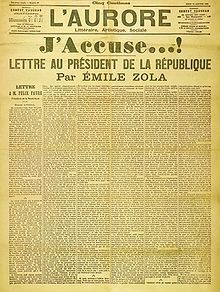I frequently read (and hear) a question that goes something like this-
ek, it’s all very well that you are here documenting the atrocities and I understand the the goals of your sites and writing are modest indeed, simply to provide a platform for others and encourage revolution in the small things, but I’m at my wits end! What do I do?
To which my answer is invariably- stop rewarding bad behavior.
As your Mother said, this hurts me more than it does you. The path of least resistance is appeasement and compliance, but spoiling pets, children, and politicians is the coward’s course.
The problem of resistance to the oligarchy
Ian Welsh
2014 January 12
You can also get change through making the lives of the rich unpleasant, or making them fear for their very lives. Social peace has often been bought by treating ordinary people better, when the rich genuinely feared the army and police couldn’t protect them.
But if the elites think that their security forces can protect them, and especially if they live in a bubble where they never have to face people whose lives they have made miserable, as is the case for most of our rich, who fly by private jet, travel about the city in helicopters or chauffered limos and live in gated enclaves; and if you can’t cost them any real money, why should they let you have any of the surplus of society beyond the bare minimum you need to remain useful to them? (Not to survive: as the cutting of food stamps in the US indicates, that’s not a priority for the oligarchy.)
Be clear that distribution of goods and money in an economy is almost entirely unrelated to any ethical idea of merit or deservedness. The bankers, amongst the best paid people in the world economy, destroyed far more money than they earned in the 00s, and yet are still paid billions of dollars in bonuses every year. They receive the money they do because they had the power to make the government make them whole after they lost everything, then the power to make the government make them even richer than before. They control a bundle of valuable rights from the state: the right to borrow at prime, the right to value assets to model (fantasy); the right to huge leverage; and the right lend, which is how money is actually created in our economy (aka. they can print money.)
This is why they’re rich: not because they produce net value: they destroy value; but because they have the power to make the government do what they want it to do and to make it not prosecute them when they break the laws, and even to change the laws so they can take even more money.
Distribution in an economy is based, virtually entirely, on power. A group receives goods and money because it can force others to give it to them. The libertarian fantasy of free markets and free choice is exactly that. They don’t exist today, they have rarely existed in the past, and to the extent they have existed they owe their existence entirely to government making sure they exist. As soon as any group gains enough power to take over government, they do, and free markets cease to exist because they make the government give them special rights,whether those are rights to print money, borrow low and lend high, or so-called intellectual property rights that let them continue to profit from ideas created 80 years ago.
Power, power is all that matters. Even distribution, or something close to it, happens only when there is relatively equality between groups in society or there is an existential threat to society which requires the willing participation of all parts of society.
If you ever want to see raises for ordinary people again, you must figure out how they will become powerful: and power means “what can they do to hurt people who cross them, hurt them really, really badly.”

 On this day in 1898, French writer
On this day in 1898, French writer  From Earth Insight by Nafeez Ahmed, hostsed by the Gardian,
From Earth Insight by Nafeez Ahmed, hostsed by the Gardian,
Recent Comments